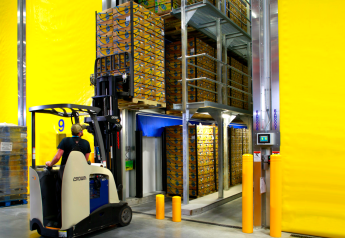Restoring Degraded Soils Improves Human Health and Well-being

World Congress on Conservation Agriculture speaker says putting conservation practices in place can help restore soil productivity on degraded farmland.
Clean air and water are regularly cited as necessities for good human health. But many people don’t realize they also need clean soils, according to David R. Montgomery, a geologist and professor at the University of Washington.
"Good human health and well-being start with the soil beneath our feet," he says.
That was one of the messages Montgomery conveyed today to farmers, members of the agricultural industry and media attending the 6th World Congress on Conservation Agriculture (WCCA) in Winnipeg, Manitoba. The theme of this year’s conference is Soil Health and Wallet Wealth. Montgomery’s presentation addressed, specifically, the need for global soil restoration.
By restoring degraded soils, he contends the world will be better prepared to address the challenges of the 21st Century such as: feeding the population of a post-oil world; harnessing carbon sequestration to mitigate climate change; improving urban environments; and, increasing environmental biodiversity.
"One of the biggest questions we can ask of society today is how can we learn from mistakes made in the past and use land intensively but not degrade its productivity over the long run," he contends.
Montgomery notes that President Franklin D. Roosevelt grappled with similar issues when he wrote to U.S. state governors at the height of the Dust Bowl in 1937 that "The nation that destroys its soils destroys itself."
Roosevelt responded to the nation’s soil crisis in a number of ways. He ordered the Civilian Conservation Corps to plant 200 million trees from Canada to Abilene, Texas, to break the wind and hold soil in place. Along with that, his administration began educating farmers on soil preservation measures and encouraging the adoption of new tillage practices, even paying reluctant producers $1 an acre to adopt conservation measures. By late 1938, the variety of efforts employed collectively had reduced the amount of blowing soil in the U.S. by as much as 65%.
Today, Montgomery says a number of conservation practices and new technology will once again be needed to restore soil productivity on land that has been degraded. One way he says farmers can contribute to the process is by focusing more on optimum yield results instead of maximum yields, as the former is more sustainable long-term.
Along with that, Montgomery acknowledges that as farmers look to improve their production methods, to make them more sustainable, governments around the world will need to develop policies and incentives that encourage such practices.
"There’s education needed at the government policy level and better communication (with government officials)," he says. "We need to align short-term interests with our long-term interests."







